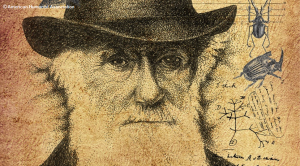Rules Are for Schmucks: Darwin Award Nominee

The “Darwin Award” does not, as you might at first suppose, recognize the academic achievement of a scientist for making sense of words that have far too many syllables. In fact, it’s an award you really don’t want to win, because it can only be given posthumously.
Since 1985, people have been collecting bizarre stories of individuals who discovered creative ways of getting themselves killed. This is thought to modestly contribute to the process of natural selection by removing some sort of “idiot gene” from the human gene pool. Author Wendy Northcutt has compiled these stories in a series of best-selling books, some with not-so-creative names like “The Darwin Awards III,” “The Darwin Awards IV,” etc. She has even refined the award process, occasionally recognizing those who accidentally sterilize themselves rather than going all the way, providing Honorable Mentions for such near-misses.
Some of the stories are remarkable, like the fellow who accidentally took a swig of gasoline and then calmed his nerves by lighting a cigarette. Or the couple who thought it would be a good idea to increase their thrill by having sex on top of a steeply sloping roof. The future of our species can only improve from this.
For those who have been around death, there’s something about it that’s not all that funny. These people all had friends and families who miss them. Still, we’ve all got to go sometime, and the living can learn something valuable from particularly ludicrous techniques of doing oneself in.
Which brings me to 23-year-old Kulraj Singh Kalsi of Yorkshire, England, who struck a Volkswagen van while riding his motorcycle, sailed through air, struck a concrete post with his head, and died. According to the recently released coroner’s report, Mr. Kalsi was not wearing a helmet.
Riding a motorcycle without a helmet is surely the kind of foolishness that our species could do without. It’s unlikely, though, that this would make the cut for a future Darwin Award, because it’s too mundane. What makes it more interesting, though, is that Mr. Kalsi was exempt from the British motorcycle helmet laws, because he was a Sikh. Sikhs wear turbans. Helmets aren’t designed to fit over turbans. Therefore, non-Sikhs riding motorcycles have to wear helmets, but Sikhs do not.
Britain isn’t alone in this. Hemant Mehta wrote a while back about a similar exemption proposed in Manitoba, and a Wikipedia article suggests (without citation) that British Columbia, Australia, and several South Asian nations have the same rule.
I can understand the argument against having helmet laws for anyone. It’s more nanny-state interference with what must be an exhilarating speed sensation. I could be more sympathetic, though, if tax and insurance premium payers like me didn’t have to spend millions of dollars on medical bills for thrill-seekers. What I cannot understand is writing a law that effectively ends with the phrase “unless God tells you otherwise, in which case you don’t have to.”
Helmet laws are not the only special privileges for Sikhs, as well as those of other faiths who claim special religious rights. The United States Army, like most military organizations for the past several centuries, learned that soldiers perform better when everyone is wearing the same uniform. Group cohesion is terrifically important, especially under stress, and having everyone wear exactly the same thing contributes to the sense of “we’re all in this together.” So when Dr. Kamal Kalsi (perhaps a relative of the deceased cyclist?) decided that he wanted to be different and wear a turban rather than standard military headgear, the Army said “No.” Until, that is, God experts of all stripes poured on the political pressure, including letters from fifty members of Congress. So now Dr. Kalsi gets a special rule. This gives poignancy to the former recruiting slogan, “An Army of One.”.
Then there are the daggers (called kirpans) that many Sikhs insist they be allowed to carry at all times, even in places where weapons are forbidden, like schools. In some places, children get expelled for playing with toy guns near a school, after school hours. These kids are not savvy enough to use the “God told me to” defense which, in California and Canada, allows Sikh students to carry weapons in class all day long. Some will argue that Sikhs’ special daggers are purely symbolic, dulled, and not dangerous to anyone. Admittedly, some kirpans are less dangerous than scissors. Still, try telling that to the eleven people stabbed at a Sikh riot in New Delhi in 2012. When Sikhs sought to bring their daggers to a meeting with the pope in 2008, permission was denied, so they stayed away. I don’t agree with the Vatican very often, but they got this one right, as did the Transportation Security Administration (TSA) who requires that all fixed blade knives, including kripans, to go in checked luggage.
Sikhs should be able to wear their turbans anywhere that I can wear my baseball cap. Sikhs should be able to carry their daggers anywhere that I can carry my knife. That’s genuine “religious freedom.” What’s happening as a result of legislation like misnamed Religious Freedom Restoration Act, is that Sikhs and other religious people are getting special privileges that I don’t have.
So I would nominate for a special Darwin Award category not poor Mr. Kalsi of Yorkshire, but all the gutless lawmakers and judges who cave in to God expert pressure, from Sikhs or anyone else, to grant special religious exemptions to sensible safety and other rules.
